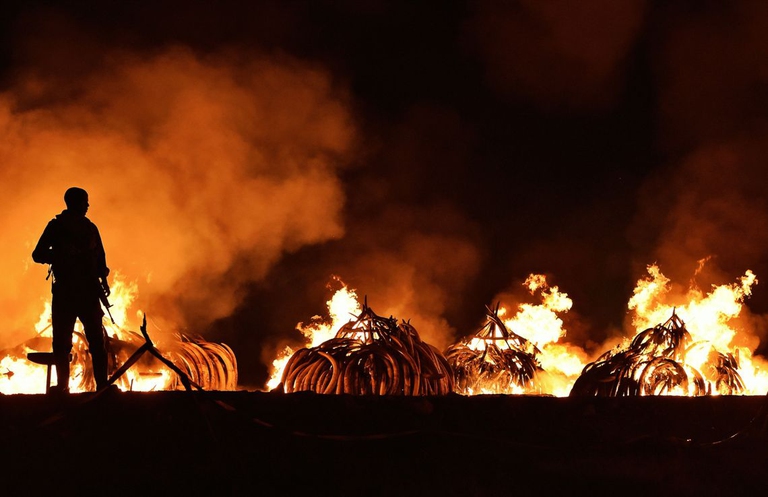
Our species took its first steps in a world covered in trees. Today, forests offer us sustenance, shelter, and clean the air that we breathe.
In response to an alarming rise in the poaching of the African elephant population, the United States Fish and Wildlife Service has announced a near-total ban on the sale of ivory products in the country, even across state lines. It will take effect on the 6th of July. While ivory import bans and restrictions have been in
In response to an alarming rise in the poaching of the African elephant population, the United States Fish and Wildlife Service has announced a near-total ban on the sale of ivory products in the country, even across state lines. It will take effect on the 6th of July. While ivory import bans and restrictions have been in place since 1978, when elephants were classified as threatened under the Endangered Species Act, the lack of strict enforcement has allowed the notorious poaching business to thrive, leading to the death of over 20,000 elephants per year.
A serious effort to contrast poachers started in 2013, when President Obama signed an executive order, followed by the National Strategy for Combating Wildlife Trafficking outlined in 2014, aimed at stopping wildlife trafficking and protecting endangered species. In September 2015, Chinese President Xi Jinping and President Obama agreed to ban the ivory trade in both China and the US, the two biggest markets for illegal ivory.
U.S. adopts ‘near-total’ ban on #elephant #ivory trade https://t.co/iB0MhAKjZ9 via @TIME pic.twitter.com/VfO6GNgqWW
— CITES (@CITES) June 2, 2016
With the latest regulation soon coming into effect, the Obama administration’s plan is finally coming to completion. All import and export of African elephant ivory will be banned. There will be very few exceptions, such as antiques that are over 100 years old, musical instruments, firearms and furniture containing less than 200 grammes of elephant tusks. As US Secretary of the Interior Sally Jewell stated: “Today’s bold action underscores the United States’ leadership and commitment to ending the scourge of elephant poaching and the tragic impact it’s having on wild populations.”
The new rule doesn’t come without controversy. While the National Rifle Association is against poaching and illegal trade, it believes the new regulation won’t protect elephants in Africa and Asia, but may turn ivory sellers into criminals and decrease the value of thousands of items. According to Dan Ashe, director of the US Fish and Wildlife Service, the common sense exceptions allowed by the rule protect those trading items with small amounts of ivory. “We still have much to do to save this species, but today is a good day for the African elephant,” he said.
Siamo anche su WhatsApp. Segui il canale ufficiale LifeGate per restare aggiornata, aggiornato sulle ultime notizie e sulle nostre attività.
![]()
Quest'opera è distribuita con Licenza Creative Commons Attribuzione - Non commerciale - Non opere derivate 4.0 Internazionale.
Our species took its first steps in a world covered in trees. Today, forests offer us sustenance, shelter, and clean the air that we breathe.
Poachers in Africa are encroaching on wildlife land and killing rhinos in travel hot spots now devoid of visitors due to the coronavirus pandemic.
Actor and environmental activist Leonardo DiCaprio has contributed two million dollars to a fund to protect Virunga National Park in Congo from threats such as terrorism, the coronavirus and poaching.
For the first time in seventeen years, Iceland’s two main whaling companies won’t resume whale hunting. The announcement concerns this year’s season but could carry into the future.
The relationship between the coronavirus and wildlife is complex: while the pandemic may lead to a reduction in the illegal trade in wild animals, it may also encourage it in other respects.
The largest coral reef in the world is severely threatened by climate change, but researchers are developing strategies that could contribute to saving the Great Barrier Reef.
NGO Free the Bears has opened a mountain sanctuary for moon bears in Laos. With the government’s help, it aims to close all bile farms by 2022.
Seychelles have extended its marine protected area, which now covers over 400,000 square kilometres, an area larger than Germany.
The tapir was reintroduced into Brazil’s Atlantic Forest, the country’s most at-risk ecosystem. The species can play a key role in the forest’s recovery.








